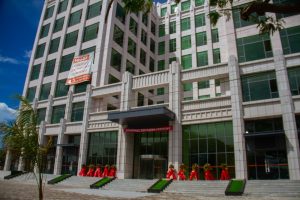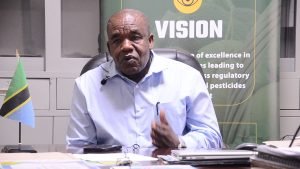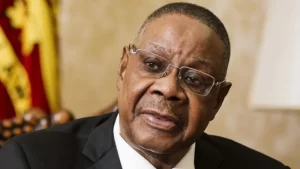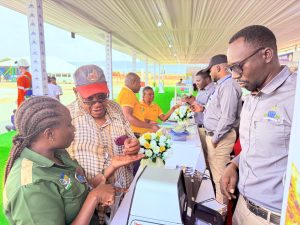BBT Youth Project Fetches Lucrative Financial Supports
By STAFF REPORTER, Dar es Salaam
THE future of Tanzania’s agriculture sector is likely heading towards impressive destination following a move by the world’s giant development partner to chip in and inject the economic facet with the generous financial supports.
Under the development, the country’s youth agriculture initiative, the Building Better Tomorrow Youth Initiative for Agribusiness (BBT-YIA) has attracted a lucrative fund of at least 500 million US dollars (about 1.25tri/-) from development partners, to assit the robust projects to run successfully in the next six years.
According to the Agriculture Minister, Hussein Bashe, the development partners in question and their funding commitment in bracket include the African Development Bank (100 million US dollars), World Bank (300 million US dollars additional funding), the Alliance for a Green Revolution in Africa (AGRA) and its partners (40 million US dollars) and the International Fund for Agricultural Development (60 million US dollars).
Also, he expressed tha the United States Agency for International Development (USAID) are in the list of the country’s well- wishers partners who declared funding commitment.
He noted that the development partners expressed their funding commitment at the Youth Town Hall at the sideline of the ongoing Africa Food Systems Forum 2023 in Dar es Salaam.
The Youth Town Hall is an event to develop the youth agenda to inform policy, practice and program that engage and/or are created to support young people.
Giving further details pertaining the development, he informed that under the BBT program, the government is not only majoring on farming, livestock keeping and fishing, but the entire ecosystem of the production, from the input to the production, to the processing, to the market, up to the consumption.
“The government will provide a youth with an average of a minimum of 10 acres and in every feedlot the government will give an average of the minimum and average of 10 cows,” he added.
Zanzibar President Dr Hussein Mwinyi graced the Youth Town Hall event at which he led the fundraising for the BBT programme.
And during his brief remarks, President Mwinyi said the political will has been growing at a high pace in Africa, aiming at supporting the youth and women in agribusiness.
“Due to the impressive growth, especially of digital systems that drive agriculture growth, there has been an increased number of the youth as part of economic growth through agriculture in Africa,” he said.
He however spoke over poor participation of the youth and women in the agriculture sector and livestock due to low resources, skills and lack of capital.
“It is important to address a challenge of lack of market, climate change and poor infrastructures for production as well as the issue of technology,” he argued.
US Ambassador to Tanzania Michael Battle, for his part, assured that his country will continue supporting Tanzania’s efforts in improving agricultural systems including the BBT program and others.
“About 25 per cent of the USAID budget goes to supporting Tanzania, now we are going to assess and see if the programs funded by USAID go in line with the current government’s direction,” he said.
In fact, just yesterday, USAID Deputy Administrator Isobel Coleman announced two new USAID investments totaling 10 million US dollars (about 25bn/-) to conserve critical ecosystems and carbon sinks in Tanzania.
This includes an initial 8 million US dollars (about 20bn/-) to launch the USAID Tumaini Kupitia Vitendo (Hope through Action) project, a five-year partnership with the Jane Goodall Institute to strengthen government, village, and stakeholder management of natural resources in Tanzania.
Another 2.1 million (about 5.2bn/-) to improve the climate resilience of coasts and fisheries in Tanzania as part of the ongoing USAID Heshimu Bahari (Respect the Ocean) project.
These initiatives contribute to USAID’s participation at the Africa Climate Summit during which USAID announced 34 million US dollars (about 85bn/-) to support African climate leadership and contribute to economic growth and prosperity across the continent, including these two activities.











